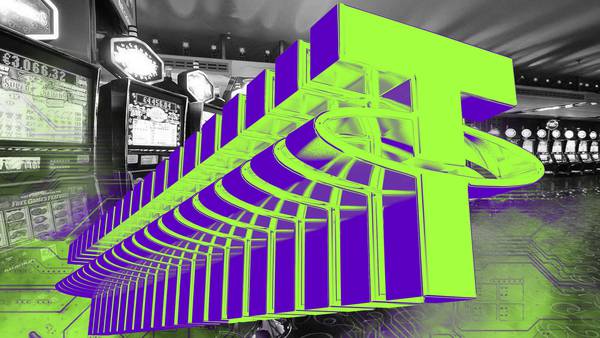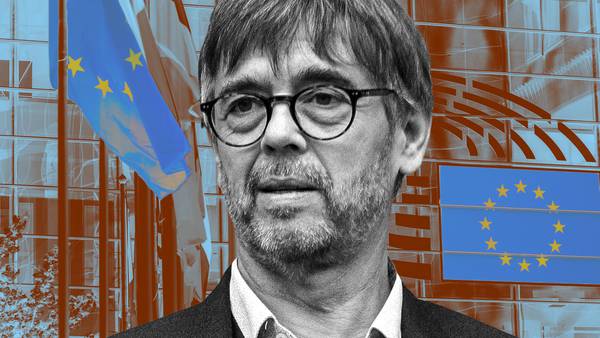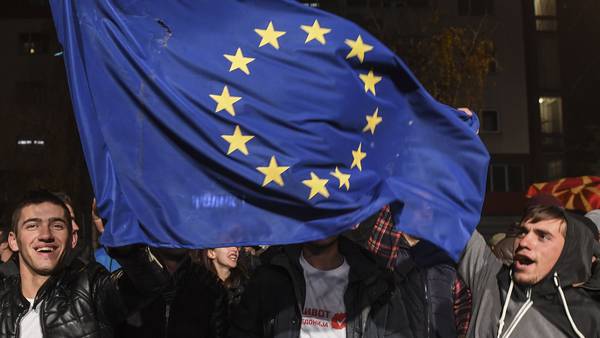EU’s new money laundering deal poised to burden crypto more than traditional finance – DL News

- Europe’s legislators reached a provisional agreement on the anti-money laundering rulebook.
- Crypto firms will be obliged to carry out additional customer due diligence.
- Some onerous provisions for self-custody wallets were dropped, according to sources.
In a move that may force the crypto industry to scrutinise payments more intensely than traditional finance firms do, European lawmakers late Wednesday provisionally agreed to adopt a new anti-money laundering regulation.
Following negotiations in Strasbourg, officials will now shift to reviewing technical details in discussions expected to begin on Friday.
While the regulation has not been officially adopted, key decisions affecting the crypto industry have already been made, according to a parliamentary official who declined to be named speaking about pending legislation.
Intense due diligence
Unlike other financial transactions, crypto firms will now have to perform know-your-customer, or KYC, measures on transactions worth less than €1,000.
Stay ahead of the game with our weekly newsletters
That’s on top of more rigorous due diligence applied to transactions greater than €1,000.
In contrast, cash payments have a due diligence threshold of €3,000.
Now read
The landscape of crypto crime is transforming — stablecoins have overtaken Bitcoin as the preferred…The landscape of crypto crime is transforming — stablecoins have overtaken Bitcoin as the preferred method for illicit…
These provisions come as the European Union reaches near the end of a three year process to pass the Anti-Money Laundering Regulation, or AMLR.
This rulebook will force financial firms to strengthen measures to prevent criminals from using the financial system to handle illicit funds in the 27-nation bloc. The rules are expected to come into force three years after the bill becomes law, according to the parliamentary source.
Join the community to get our latest stories and updates
The EU will also establish a new authority to oversee the new rules if they become law.
Marathon of negotiations
In a marathon of negotiations, EU officials have been wrestling with how to include crypto and DeFi within purview of the regulation.
The result is, most likely, that purely decentralised protocols are left out.
The process was happening while other EU rules on crypto, such as the comprehensive Markets in Crypto-Assets regulation, were also in the works.
‘There will be a chilling effect on DeFi and web3 innovation in the EU, as developers will rise where there are no such requirements’
— Mark Foster, Crypto Council for Innovation
The result is double-edged for the crypto industry.
Lawmakers have strived to reassure the industry they are creating a “level playing field for the crypto sector,” in the words of Eero Heinäluoma, a Finnish member of the European Parliament.
“We managed to make sure that the crypto sector will be playing by the same rules and have the same obligations as the traditional financial sector,” Heinäluoma, a member of the Socialist and Democrat groups and one of the lead negotiators on the regulation, said in a press conference in Strasbourg on Thursday.
Burdensome requirements
But crypto advocates don’t see it that way.
They say there are more burdensome requirements for crypto firms than for traditional financial counterparts, and point to the different levels of due diligence they have to perform on low-value payments.
EU legislators are causing confusion by saying the rules would level out the playing field for crypto, because “they are not,” said Tommaso Astazi, head of regulatory affairs at Blockchain for Europe trade association.
Then again, the new regime could have been much worse for crypto.
As the negotiations wore on over the past weeks, EU legislators dropped some of the trickier provisions for crypto.
‘After all the panic and confusion, we ended up in a considerably good place for our industry.’
— Tommaso Astazi, Blockchain for Europe
For example, a requirement that would have limited merchants from accepting payments greater than €1,000 from unidentified self-custodial wallets was provisionally dropped.
“After all the panic and confusion, we ended up in a considerably good place for our industry,” Astazi said.
While this brings relief to policy watchers, there are still concerns the regulation could have a “chilling effect” on Europe’s crypto industry, according to Mark Foster, EU policy lead for the Crypto Council for Innovation.
If the EU overbears with DeFi industry compared to other jurisdictions, “developers will rise where there are no such requirements,” he told DL News.
Self-custody wallets
Another major takeaway from Wednesday’s negotiations is the removal of some of the onerous provisions for non-custodial wallets, or what lawmakers call self-hosted wallets.
While the restrictions were dropped on the amounts merchants are allowed to accept from self-hosted wallets which aren’t linked to a licensed crypto firm, that does not mean self-custody wallets are off the hook.
“For self-hosted wallets, the commission has a mandate to monitor the evolution of the market and to identify technical solutions to identify users, it was a bit difficult to set this in place today,” French Green Party MEP Damien Carême said Thursday.
If a customer makes a payment made outside of a relationship between a licensed crypto firm, the transaction “must involve a control of the customer in order to identify any cases of funding terrorism,” he said.
The anti-money laundering rules come as a host of regulations are enforced on the crypto sector in the 27-nation bloc.
The AMLR also prohibits crypto service providers from offering fully anonymous accounts.
The text of the legislation is still provisional and may see changes in the coming weeks.
Once it is finalised, the bill will need to be approved by the finance ministers in the council of the EU and pass a vote in the European Parliament’s plenary.
This provision came under consideration following reports Hamas, the Palestinian organisation that attacked Israel on October 7, used crypto to fund its operations in the past.
Other official sources a final call will come during the technical discussions in the coming weeks.
Post-MiCA regulations
The anti-money laundering rules come as a host of regulations are enforced on the crypto sector in the 27-nation bloc.
The Markets in Crypto-Assets regulation is the European Union’s landmark law which sets a licensing regime for crypto asset service providers, starting from the end of the year, and rules for stablecoin issuers, starting in June.
The Transfer of Funds Regulation will also apply from the end of the year, and also establishes anti-money laundering provisions.
Also known as the Travel Rule, it will mean that crypto firms will need to record identifying information about the senders and receivers of crypto transactions.
This law already requires verifying and identifying transfers to and from self-custody wallets.
The European Banking Authority issued guidance for crypto firms on how to apply the Travel Rule this week, which will apply from 30 December.
Have a tip about crypto in Europe? Contact the author at [email protected]










